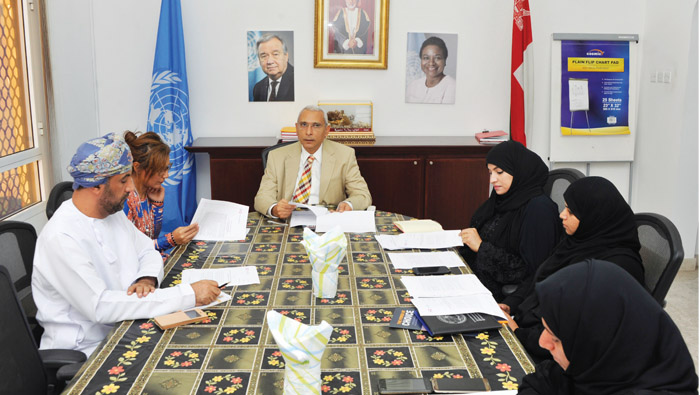
Muscat: The United Nations Population Fund (UNFPA) report stresses that Oman provides health services to the entire family to improve healthcare and to meet the objectives of the vision of the Ministry of Health in 2050.
The fertility rate in the Sultanate is 2.7 births per woman, indicating that women today in the Sultanate have the ability to make reproductive choices and their contribution to the sustainable development and access to quality education.
The United Nations Population Fund (UNFPA) released a new report on the state of the world’s population 2018 entitled ‘The Power of Choice - Reproductive Rights and the Demographic Transition’ at a joint press conference with the Ministry of Social Development at the United Nations Population Fund (UNFPA) Sub-regional Office for the Gulf Cooperation Council (GCC).
The report was released in the presence of Asr Ahmad Toussoun, the Fund’s representative, and Ayeda bint Nasser Al Siyabiyah, Director of the Programmes Section at the Women’s Affairs Department of the Ministry of Social Development and a number of media professionals.
Asr Ahmad Toussoun, the Fund’s representative said that the World Population Report, released yesterday by the United Nations Population Fund 2018, the United Nations agency responsible for reproductive health, confirms that birth spacing and the empowerment of women drive the pace of economic and social progress in the world.
It also explains that the size of family is closely linked to reproductive rights, including the right to health, education and appropriate employment.
For her part, Ayeda bint Nasser Al Siyabiyah said that the Sultanate attaches great importance to the advancement of Omani women and spares no effort to involve women in the comprehensive development plans and in their support and empowerment.
She added that the Ministry of Social Development focused on the advancement of the women’s sector through the development of mechanisms to empower women and develop their capacities.